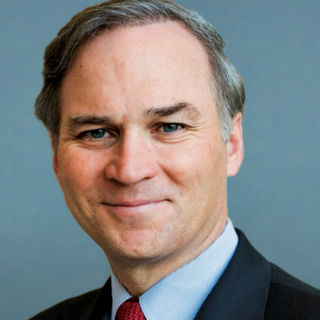
Years later, Franklin recounted the visit in a letter to Cotton Mather’s son, writing, “I often think of it when I see pride mortified, and misfortunes brought upon people by carrying their heads too high.”
Benjamin Franklin and Cotton Mather’s personalities were quite different. They didn’t agree on many things; they would sit on “opposite sides of the aisle,” to borrow a term from today’s politics. But in his writings later in life, Franklin credits his interactions with Cotton Mather as some that helped soften his ego and lead him to a different style of leadership.
Today, we’ve grown accustomed to a particular way of leadership in Washington. It’s a way of pride that digs its feet in the ground, too often focused on power, rather than on principle. I won’t discriminate in this claim, because it happens regardless of ideology or political persuasion. Frustration with this type of arrogance and the deaf ears of big government is a refrain I hear echoed over and over when I talk with people back home, whether it’s in the aisle of Home Depot or while having dinner at Olive Garden with my wife, Shirley.
I think this is because too often leaders in Washington get so used to hearing the sounds of their own voices or the voices of other leaders’ around them that they forget to listen to the voices of the people that matter most – the people whom they represent and serve.
Early on in my time in Congress, while working in my office in Washington, I looked up and noticed all of the photos that had accumulated over the short time I had been there that people had given me. I saw framed pictures of me shaking hands with ambassadors, dignitaries, and other government leaders. Each photo represented an important interaction or conversation, but in that moment I realized how easy it is for Washington to deceive someone into thinking it’s all about them, to become so consumed with yourself and lose sight of why you are there in the first place.
So I replaced the photos. Now, a framed copy of the Declaration of Independence hangs on the largest wall in my office, surrounded by individual portraits of the 56 signers. It serves as a daily reminder of the magnitude of the responsibility we have here in Congress and as American citizens. It’s a visual representation of the shoulders upon which we stand.
Today, I seek to apply this same principle by making it a priority to cultivate conversations and create avenues for listening — whether it’s through conducting tele-town halls, holding office hours around the District, soliciting feedback through weekly polls, or engaging in real time updates via emails, Facebook, and Twitter. Utilizing all of these channels to facilitate as much communication as possible is not just important, it is part of the job description as your representative.
I believe our nation needs leaders who don’t just hear the American people, but are listening to them. That requires putting ego aside. That requires humility. If Benjamin Franklin had been listening as he walked out of the library, he might have been able to hear Mather tell him to stoop. Instead, he was so focused on other things – perhaps himself and his own agenda – that he wasn’t able to hear the voice that was most important: the voice that saw things he didn’t.
The lesson Benjamin Franklin learned is one Washington would do well to take heed of. Humility in leadership must be expected, not the exception – just as listening is not optional, it’s the only way for our model of citizen-centric government to remain operational. This is the type of leadership that helped shape this country. And it is the type of leadership we need to move this country forward.
Randy Forbes represents the Fourth District of Virginia in Congress.










